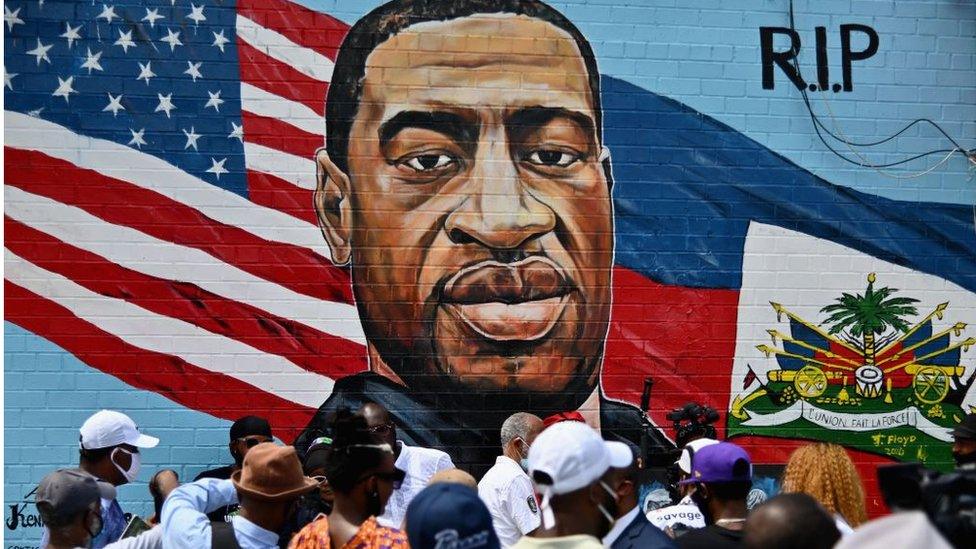Derek Chauvin: The man accused of killing George Floyd
- Published
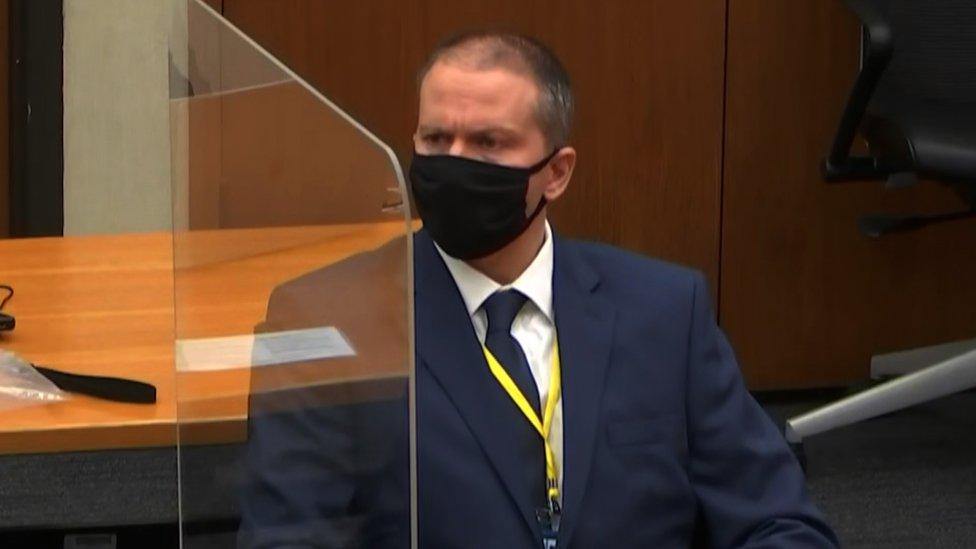
Mr Chauvin, pictured on the first day of jury selection
Derek Chauvin, the former police officer filmed kneeling on George Floyd's neck before he died, is on trial in Minneapolis.
Since Mr Floyd's arrest and death on 25 May, the 19-year police veteran has remained largely out of the spotlight and free on bail.
Mr Chauvin will be the first of the four officers involved in the incident to stand trial. Jury selection began on 9 March.
He is facing the most serious charges of the four, including second-degree murder. Mr Chauvin has pleaded not guilty to the charges.
The others are charged with aiding and abetting Mr Chauvin's alleged crimes.
What charges does Chauvin face?
He is charged with second-degree murder and manslaughter. Prosecutors are also seeking to add a charge of third-degree murder.
Legal experts say that third-degree murder carries a lesser sentence, but it is easier to prove in court.
To prove second-degree murder, prosecutors must convince jurors that a serious assault had been committed by Mr Chauvin, and that it was a "substantial causal factor" in Mr Floyd's death.
Third-degree murder requires prosecutors to prove that Mr Chauvin showed a reckless disregard for human life, but not prove that an assault led to the death.
In an unrelated case filed after Mr Floyd's death, prosecutors charged Mr Chauvin and his wife with underpaying taxes for six years. They have pleaded not guilty to nine charges against them. Each charge carries a sentence of five years in prison.
What is Chauvin's police record?
Mr Chauvin, 44, was the most senior officer involved in Mr Floyd's arrest, having served for almost two decades with the Minneapolis Police Department.
His record of policing included both commendations and complaints about conduct.
In 2006, Mr Chauvin was recommended for a medal of valour for his role in the shooting of a man who aimed a shotgun at officers.
There have been at least 15 conduct complaints against him, the Star Tribune reported, external, citing records from the Minneapolis Police Department's Internal Affairs. Most of the complaints were closed without discipline.
Mr Chauvin's personal files were heavily redacted, but there are details of one complaint from 2007.
It concerns allegations Mr Chauvin pulled a woman from her car and frisked her after she was caught driving 10mph (16 km/h) over the speed limit.
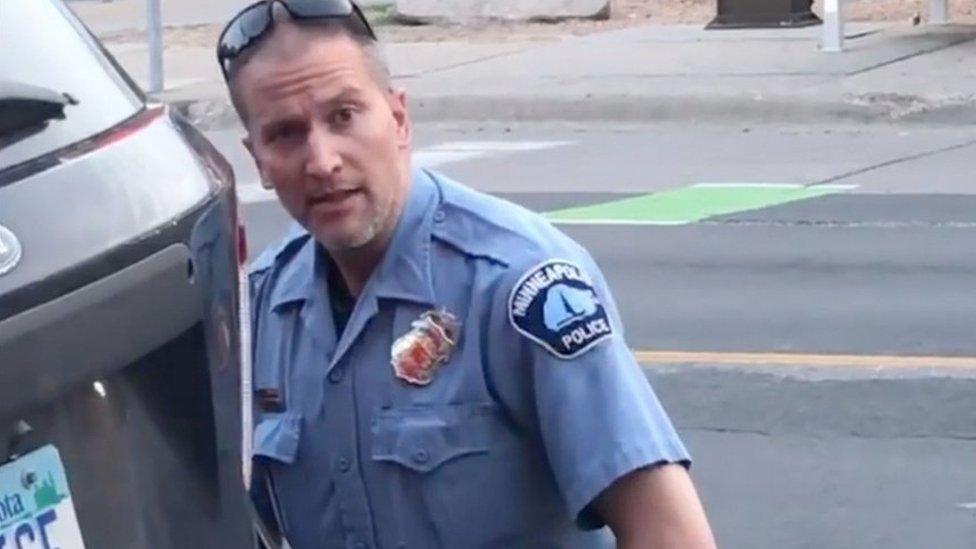
A report found Mr Chauvin did not record audio of the incident and failed to switch his dashboard camera on during the stop.
He was disciplined for this complaint and one other, receiving a letter of reprimand on both occasions, records show.
What do we know about his personal life?
Mr Chauvin served two stints in the US Army prior to his career with the police. He was a member of the military police from September 1996 to February 1997, and again from September 1999 to May 2000.
His other previous jobs include security guard and McDonald's employee.
The day after Mr Chauvin's arrest, a lawyer for his wife Kellie said she had filed for divorce.
"She is devastated by Mr Floyd's death and her utmost sympathy lies with his family, with his loved ones and with everyone who is grieving this tragedy," her lawyer said in a statement.
Did Chauvin know George Floyd?
After Mr Floyd's death, the owner of a nightclub in Minneapolis revealed that the two men had worked alongside each other every Tuesday night.
Maya Santamaria, the owner of El Nuevo Rodeo said Mr Floyd worked security inside the club, while Mr Chauvin was paid while off duty to sit inside his squad car outside the club and occasionally help remove unruly patrons.
"I wouldn't characterise them as knowing each other," she told CNN, adding that "they would have crossed paths".
Lawyers for Mr Floyd's family had argued that Mr Chauvin's alleged past relationship with Mr Floyd played a role in his death.
An employee at the club initially claimed that the two men regularly "butted heads", but later said he had mistaken Mr Floyd for another black worker.
What has happened since Chauvin's arrest?
On 7 October 2020, a judge agreed to free Mr Chauvin on $1m bail, pending trial. He had been held since May at a maximum-security prison in Oak Park Heights, Minnesota.
Conditions of his bail include Mr Chauvin not contacting Mr Floyd's family, surrendering his firearms and not working in law enforcement or security as he awaits trial.
In February, US media reported that former US Attorney General Bill Barr quashed a potential plea deal that would have seen Mr Chauvin spend 10 years behind bars in exchange for pleading guilty.
The New York Times reported that Mr Barr, a Trump appointee, felt the deal was would be perceived as too lenient, and wanted state officials to be make their own decisions regarding Mr Chauvin's prosecution.
George Floyd death: What’s changed?
What happened to George Floyd?
The 46-year-old was arrested on suspicion of using a counterfeit $20 bill.
He was handcuffed, but when officers tried to put him into the squad car he resisted and a struggle ended with Mr Floyd face down on the street.
Mr Chauvin, 44, kneeled on Mr Floyd's back and neck for more than nine minutes, according to prosecutors. Three other officers assisted Mr Chauvin.
Mr Floyd said he could not breathe more than 20 times. The video shows him go limp and get carried away by police.
He was pronounced dead in hospital an hour later.
Related topics
- Published9 March 2021
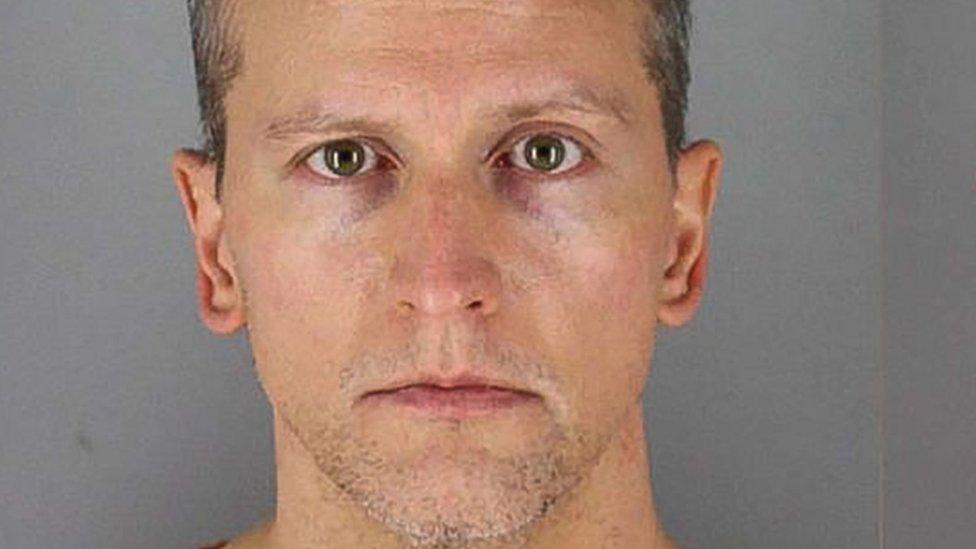
- Published8 March 2021
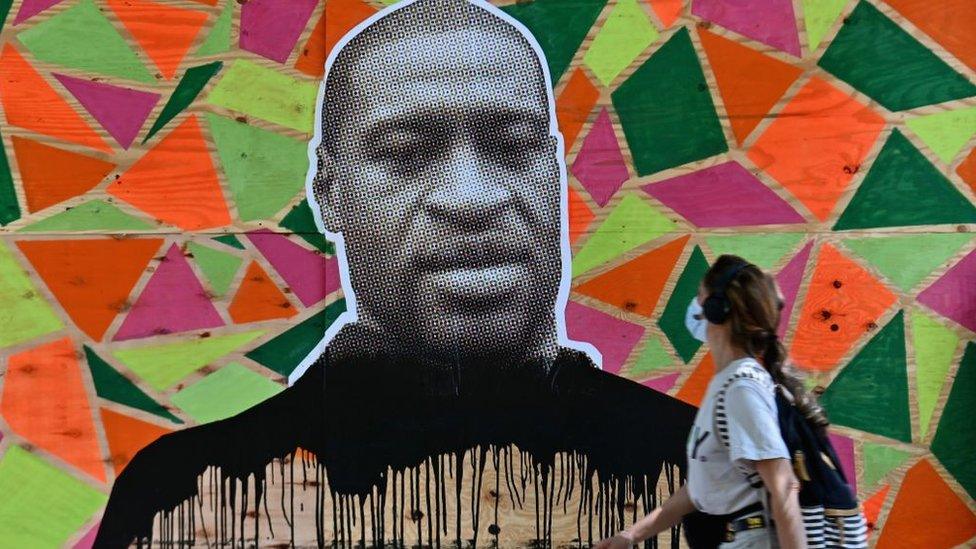
- Published21 January 2022
